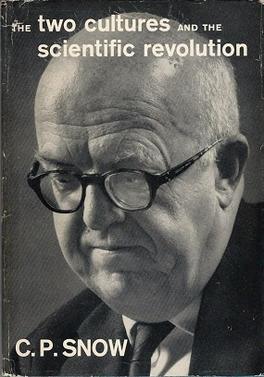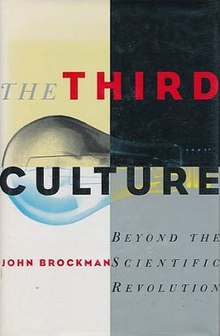[Wikipedia, accessed 6/2020]
Original sourceThird culture kids (TCK) are individuals who are (or were as children) raised in a culture other than their parents' or the culture of their country of nationality, and live in such an environment during a significant part of their early development years. They typically are exposed to a greater volume and variety of cultural influences than those who grow up in one particular cultural setting. The term applies to both adults and children, as the term "kid" refers to an individual's formative or developmental years. However, […] the term adult third culture kid (aTCK) is [also] used.
In the early 21st century, the number of bilingual children in the world was about the same as the number of monolingual children. TCKs are often exposed to a second (or third, fourth, etc.) language while living in their host culture, being physically exposed to the environment where the native language is used in practical aspects of life.
[AXA Global Healthcare]
Original sourceStudies have shown that children who grow up abroad exhibit a unique understanding of the world, have a strong social conscience to bring positive change, are well educated and can navigate the cultural nuances of our globalized economy.
Business insiders acknowledge that tomorrow’s leaders need to possess a global mindset, but beyond that, leaders need to not just think global but actually be global.
[BBC, 2016]
Original sourceIn many respects, the TCK is a test-case of a more connected, less nationally-focused world. […] “a petri dish experience for what is becoming very normal - a kind of prototype of globalization.”
[The Daily Beast, by Ruth Van Reken, 2017]
Original source“… the classic profile of a “TCK” is someone with a global perspective who is socially adaptable and intellectually flexible. He or she is quick to think outside the box and can appreciate and reconcile different points of view. Beyond whatever diversity in background or appearance a TCK may bring to the party, there is a diversity of thought as well.”
[Quartz, 2017]
Original source“According to a recent survey by The Economist, two-thirds of 572 international company executives say that their teams’ multicultural nature increases their organization’s innovation”
Observations of multi-language work teams show that mixed-language groups have a propensity to find innovative solutions for practical problems.
The bilingual brain is both structurally and functionally different from the monolingual brain.
Individuals are inclined to make more rational decisions when they think in a non-primary language. A study with bilinguals in the US and South Korea showed that using a second language eliminates a tendency toward loss aversion, and therefore reduces decision-making biases that unduly influence how risks and benefits are perceived.
Speaking an additional language provides greater cognitive and emotional understanding than just the native tongue […] such as that they can end up with improved attention, intelligence, and better verbal and spatial abilities. Multilingual individuals in a team promote cognitive diversity: Their brains all see problems and solutions in different ways.
These findings show that bilingual people may have highly valued employment attributes: analytical thinking, conceptualizing ability, working memory, and dexterity.
“Forming a multilingual team is like having different cognitive tools in your tool kit: The greater the diversity in your set, the more you can accomplish. This is yet another reason why companies should invest in a diverse talent pool. Not only do a range of ethnic and socio-economic backgrounds help improve company culture, but the more languages a team speaks, the greater their potential propensity to think up original solutions that draw from all of their backgrounds. In this way, strategically recruited work teams can secure a competitive edge and grow a company’s intellectual capital.”
[Financial Times, 2013]
Original source“Research shows bilinguals have an enhanced awareness of other people’s points of view, born from their deeper understanding, from an early age, that some people have a different perspective. They are also better than monolinguals at giving selective attention to specific features of a problem, while ignoring misleading elements, and at switching between different tasks.”
“… bilinguals do not switch off their “other” language, meaning their brains grow to be more adaptable than those of monolinguals – a vital asset in a complex business world.”
Pico Iyer | TED talk
A Film About Third Culture Kid Identity
What Makes a Global Leader?
The impact of growing up in a globalized world | Ruth Van Reken | TEDxINSEAD

[Wikipedia, accessed 6/2020]
Original sourceC.P. Snow’s book is a revision of his lecture to the Senate House (1959) in Cambridge, UK in which he explains there has been a cultural divide between the Sciences and the Humanities, which represented at the time the “intellectual life of the whole of Western society” and how that division was a major handicap to both disciplines in solving the world’s problems - thus necessitating a third “mediating” culture.

[Wikipedia, accessed 6/2020]
Original sourceThomas Kuhn’s book (1962) is a landmark publication in the history, philosophy, and sociology of scientific knowledge.
“Normal Science” is a period of cumulative progress, interrupted by the discovery of “anomalies” that result in radical shifts and a revolution in the discipline. The concept of “paradigm shift” is attributed partially to his work.
Paradigm shifts are a “mélange of sociology, enthusiasm and scientific promise”. This statement drew some criticism as the book introduces the notion of irrational elements into the stories of the greatest scientific developments, thus tarnishing the perceived “nobility” of science.

[Wikipedia, accessed 6/2020]
Original sourceJohn Brockman’s book (1995), in reference to C.P. Snow’s earlier thesis, discusses the work of several well-known scientists and helped communicate and popularize sometimes provocative ideas to the general public.
Some believed that “third culture thinking” was already present in Western Europe’s greatest and most popular science and literary works (Jules Verne’s “Voyages Extraordinaires” series, Jean Piaget and genetic epistemology, Heisenberg and the ”Tao of Physics”, Schrodinger’s cat, etc.
We use cookies to analyse our traffic. You accept the use of cookies by closing or dismissing this notice, by clicking a link or button, or by continuing to browse otherwise. Please check our Privacy Policy for the full story on how we protect and manage your submitted data.